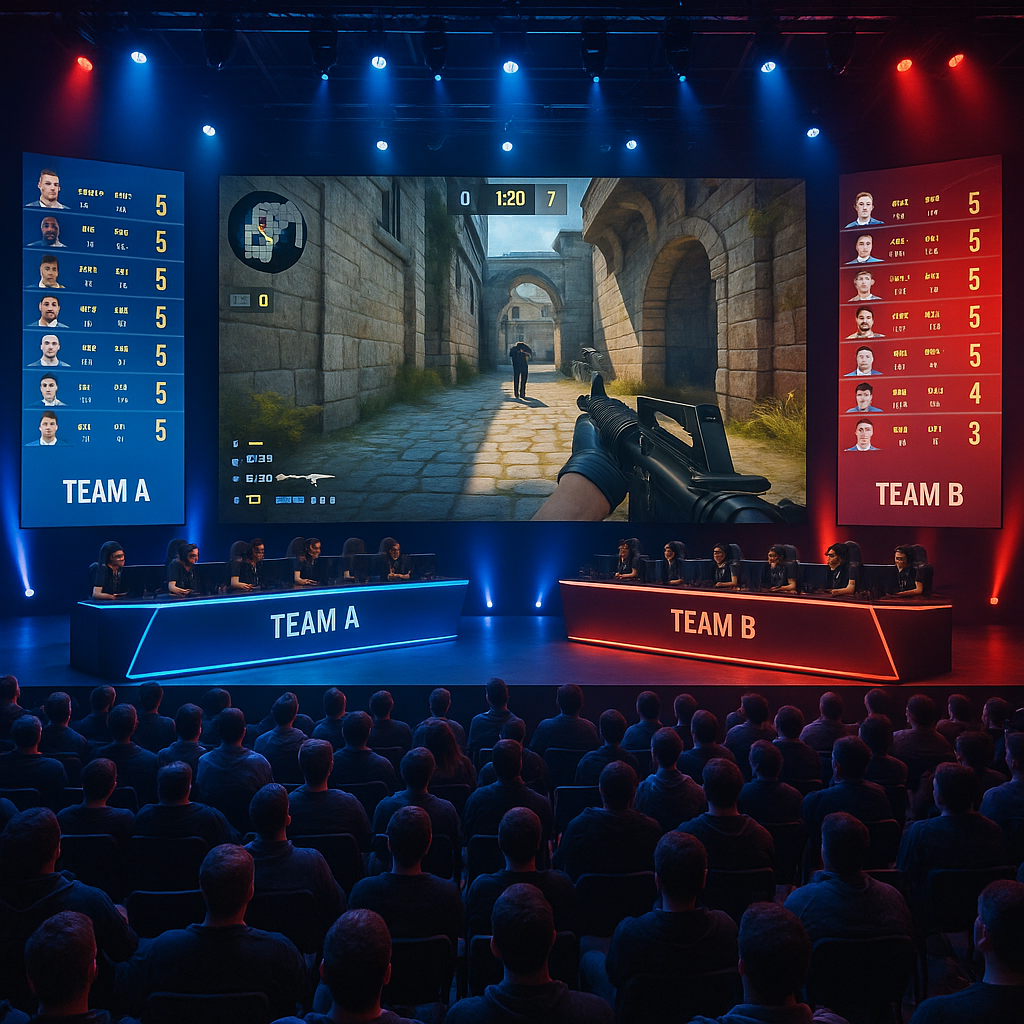World Championship Finals Break Viewership Records

The numbers are in, and they're staggering. This year's World Championship finals didn't just break viewership records — they obliterated them, drawing an unprecedented global audience that proves competitive gaming has firmly entered the mainstream entertainment landscape.
Record-Breaking Numbers
The championship finals peaked at 6.2 million concurrent viewers across all platforms, representing a 34% increase over last year's previous record. Total unique viewers reached 18.7 million throughout the tournament's duration, with the average viewing session lasting 2.3 hours — significantly higher than traditional sports broadcasts. These numbers don't include the millions more who watched through unofficial restreams and viewing parties worldwide.
Platform Distribution
Twitch dominated the streaming landscape with 3.8 million peak concurrent viewers, followed by YouTube Gaming at 1.7 million. Surprisingly, TikTok Live emerged as a significant player with 400,000 peak viewers, highlighting the platform's growing influence in live gaming content. Traditional broadcasters also contributed, with ESPN and other sports networks combining for an additional 300,000 viewers.
Global Reach and Demographics
The tournament's global appeal was evident in its geographic distribution. North America and Europe each accounted for roughly 30% of viewership, while Asia-Pacific regions contributed 35%. The remaining 5% came from emerging markets in South America and Africa, showing esports' expanding international footprint. Demographic data revealed that 68% of viewers were between 18-34 years old, with female viewership reaching an all-time high of 31%.
Production Value Impact
This year's championship featured unprecedented production values, including augmented reality player introductions, real-time statistical overlays, and multi-language commentary in 12 different languages. The investment in presentation quality clearly paid dividends, with viewer retention rates 15% higher than previous years. Post-event surveys indicated that production quality was the second most important factor in viewer satisfaction, behind only the quality of gameplay.
Social Media Amplification
The championship generated over 45 million social media interactions during the event weekend, with #WorldChampionship trending globally on Twitter for 18 consecutive hours. TikTok clips from the event accumulated over 200 million views in the first week, while YouTube highlights videos averaged 2.1 million views each. This social media amplification extended the tournament's reach far beyond traditional gaming audiences.
Sponsorship and Commercial Success
The record viewership translated directly into commercial success. Sponsors reported engagement rates 40% higher than traditional sports partnerships, with click-through rates on integrated advertisements reaching 3.2% — nearly double the industry average. The tournament's official merchandise sold out within hours of the finals concluding, generating an estimated $12 million in direct sales.
Impact on the Industry
These viewership records are sending shockwaves through the entertainment industry. Traditional sports leagues are taking notice, with several announcing plans to expand their esports investments. Streaming platforms are also responding, with rumors of increased bidding wars for exclusive tournament rights. The success has validated esports as a legitimate entertainment medium capable of competing with traditional sports for audience attention.
Looking Forward
The championship's success sets a new benchmark for future tournaments. Organizers are already planning expanded formats for next year, including additional regional qualifiers and extended broadcast schedules. The viewership records also provide compelling evidence for esports' inclusion in major sporting events, with discussions about Olympic inclusion gaining renewed momentum.
What This Means for Gaming
Beyond the impressive numbers, these viewership records represent a cultural shift. Competitive gaming has evolved from a niche hobby to a mainstream entertainment phenomenon capable of capturing global attention. For the gaming industry, this success validates continued investment in competitive scenes and suggests that esports will play an increasingly important role in game development and marketing strategies. The record-breaking viewership proves that esports has not only arrived as a legitimate form of entertainment but is actively reshaping how we think about sports, competition, and digital media consumption.
The Game Awards 2025: Full Winners List and GOTY Highlights
The Game Awards 2025 are over! Here’s the full winners list, including Clair Obs...
Netflix to Acquire Warner Bros. and HBO Max in $82.7 Billion...
Netflix is acquiring Warner Bros., HBO Max, and WB Games studios in an $82.7B de...
Black Ops 7 Drops Below MW3: Is This the Worst-Reviewed Call...
Black Ops 7 hits a shocking 1.6 user score on Metacritic, dropping below Modern ...
GTA 6 Delayed Again: Is the Wait Testing Fans or Building Hy...
Grand Theft Auto VI faces another major delay, shifting its release to November ...